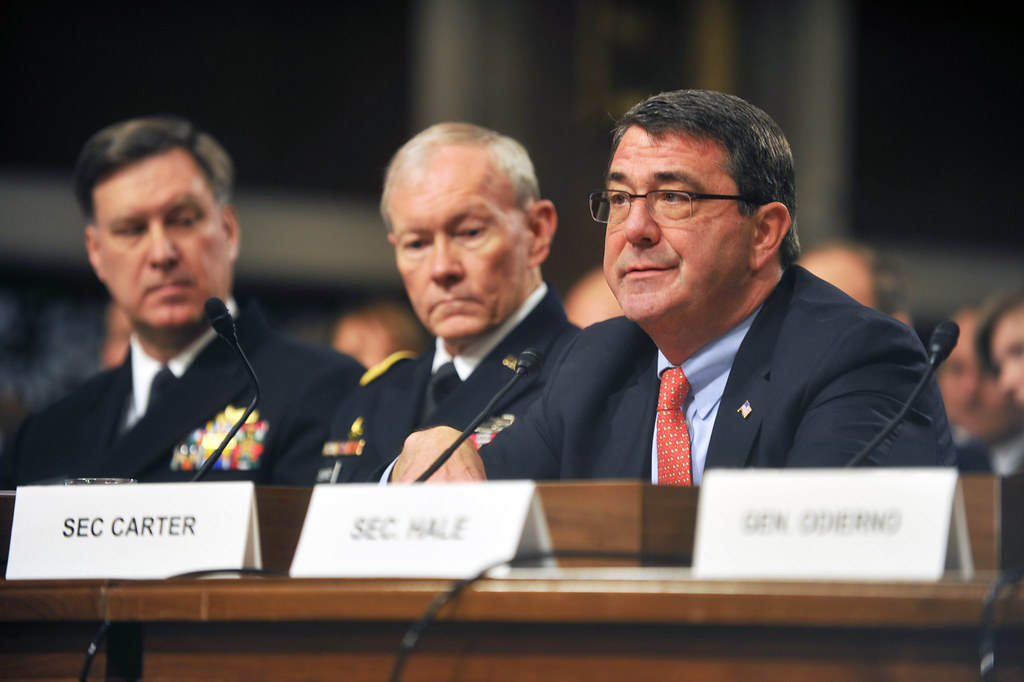By Amelia Long
Submarines continue to make headlines across Australia, with the Chairman of the US Joint Chiefs of Staff General Martin Dempsey encouraging Australia to make a quick decision about a replacement for the Collins-class submarines. In a press briefing in Sydney on Tuesday, General Dempsey stated that:
‘Whatever choice Australia makes we would strongly encourage that the systems be compatible and interoperable with the US forces. So that we can continue to operate like we do today.’
The Australian has also released a piece outlining that the submarine choice reached the point last year where media releases stating that Australia would buy a fleet of Japanese Soryu-class derived subs were prepared, but never sent out. Moreover, while it appears that the suggestion to partner with Japan ‘came first from senior American officials’, the Australian Financial Review has reported that despite many politicians believing otherwise, the US is perfectly capable of operating closely with militaries which have differing combat systems.
Meanwhile, Liberal MPs from South Australia have warned Prime Minister Tony Abbott that he may face political retribution should he choose to have the subs built outside of Australia. With Sweden’s Saab out of the running, the government has called for Germany, France and Japan to submit proposals, leaving the possibility of construction abroad wide open.
The Swedish Defence Minister was less than happy about the Australian decision, saying (in Swedish, translated here):
‘[it] is very noteworthy that Australia now does not choose an open and transparent process where potential partners can present their offers. It is my strong belief that Sweden and SAAB/Kockums would be well in the game if we had been given the possibility to present an offer to Australia. … I regret that Australia now chooses not to deepen the cooperation with Sweden in the field of underwater technology’.
The Center for International Maritime Security has offered its opinion on the US Navy’s new ‘distributed lethality’ concept, which will see almost every one of the USN’s surface ships wielding offensive missiles. CIMSEC thinks that implementation should begin with the surface combatants, rather than unarmed non-combatant vessels which would be expensive sitting ducks until further investments are made in their defensive systems.
The Center for a New American Security has some ideas on how Ashton Carter, the newly confirmed US Secretary of Defense, can increase his odds of success in the role. Priorities include replacing the Ohio-class ballistic missile subs, and investing in unmanned underwater vehicles.
In Southeast Asia, Indonesian Foreign Minister Retno LP Marsudi indicated on Wednesday that Indonesia’s chairing of Indian Ocean Rim Association (IORA) later this year will see the nation living up to its promise to become a ‘global maritime axis’. This new position will allow Indonesia to pivot its focus westward towards the Indian Ocean, a region that traditionally hasn’t been a big foreign policy focus for the country.
Maritime security in the Asia–Pacific region has been a recurrent theme in The Diplomat this week, with two articles released that focus on the failure of existing structures and forums in Southeast Asia to address regional maritime security issues. The first debunks the proposed establishment of an Asia Maritime Organization for Security and Cooperation, while the second shines a spotlight on divergent national interests—particularly China’s—as the primary cause for Asia’s failure to discuss maritime security seriously.
Meanwhile, China’s officially acknowledged its land reclamation project on Cuarteron Reef in the disputed Spratly Islands. Citing the satellite images that ruffled some feathers last week, China Military Online indicated that they’d officially begun reclamation efforts, and argued that the reef falls ‘within the scope of China’s sovereignty’.
Finally, registration is now open for ASPI’s forthcoming conference on the Future Surface Fleet, scheduled to be held at the Canberra Hyatt from 30 March – 1 April. The conference features a stellar line-up of international and Australian speakers, and will address a range of issues that we’ve already begun exploring here (and here, and here) on The Strategist. Last year’s ASPI conference on submarines was a sell-out. Book early this year to avoid disappointment.
Amelia Long is an intern at ASPI. Image courtesy of Frank Grass.
This article first appeared on the ASPI "The Strategist" Blog and is reposted here under a Creative Commons license.

